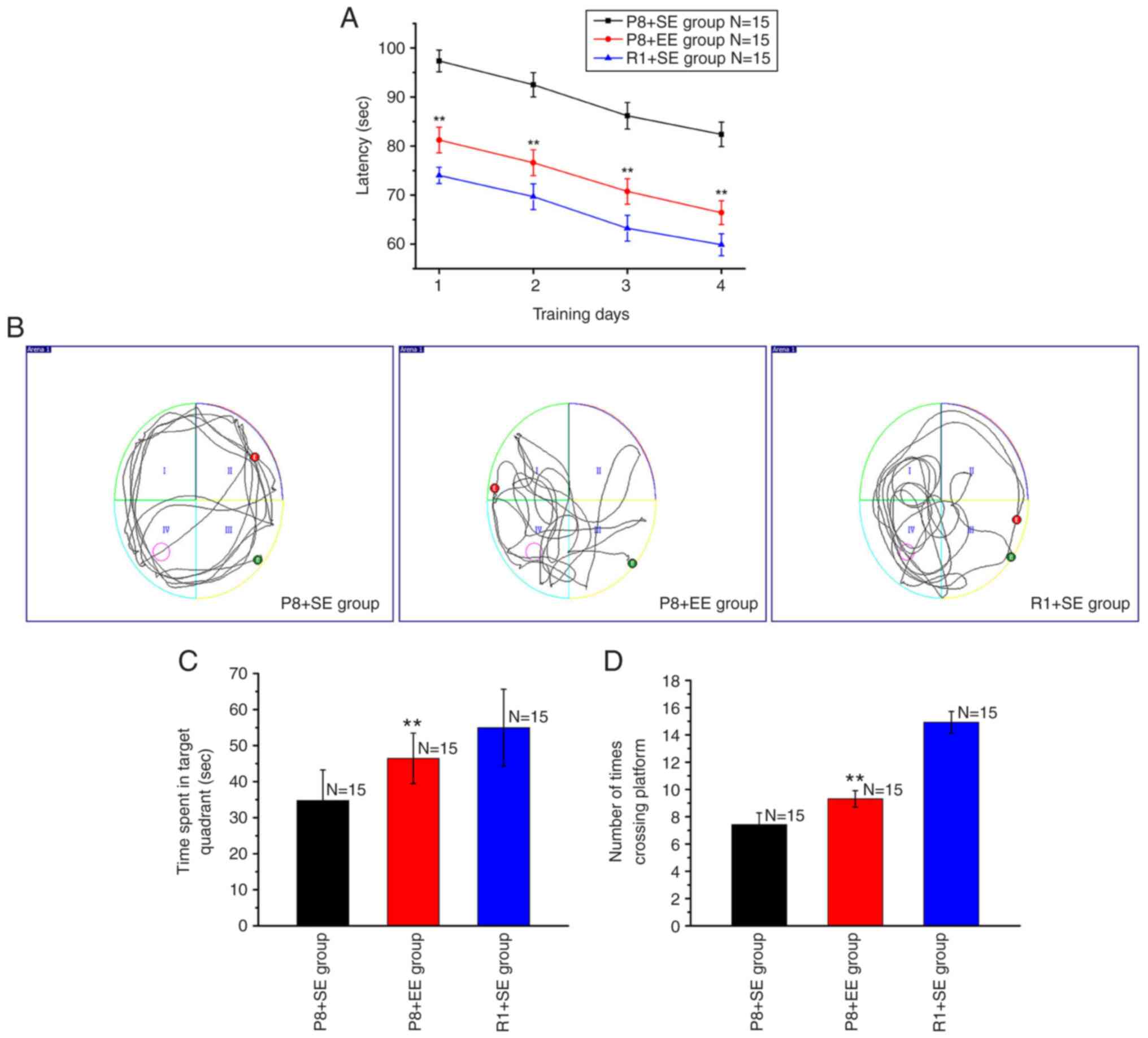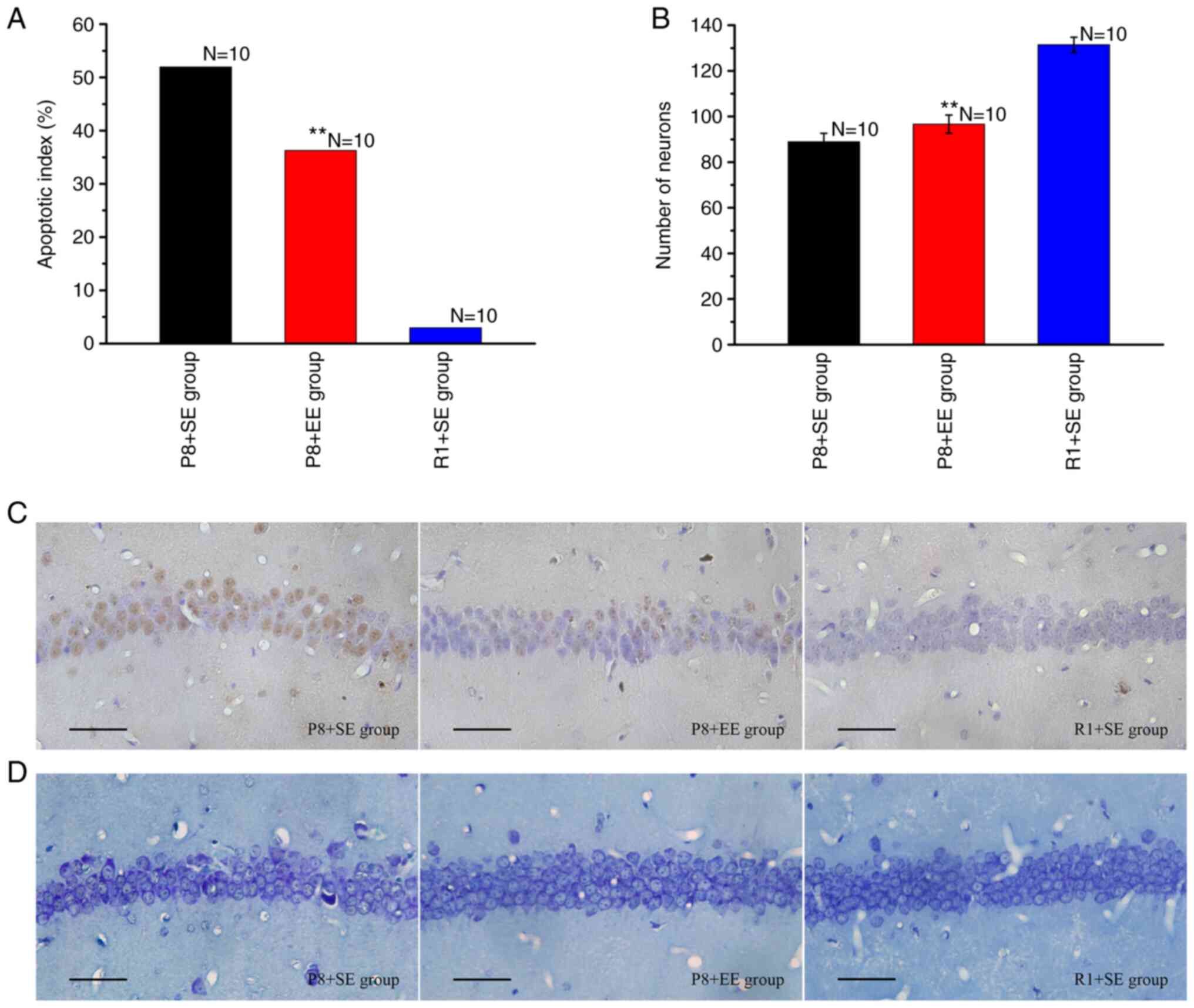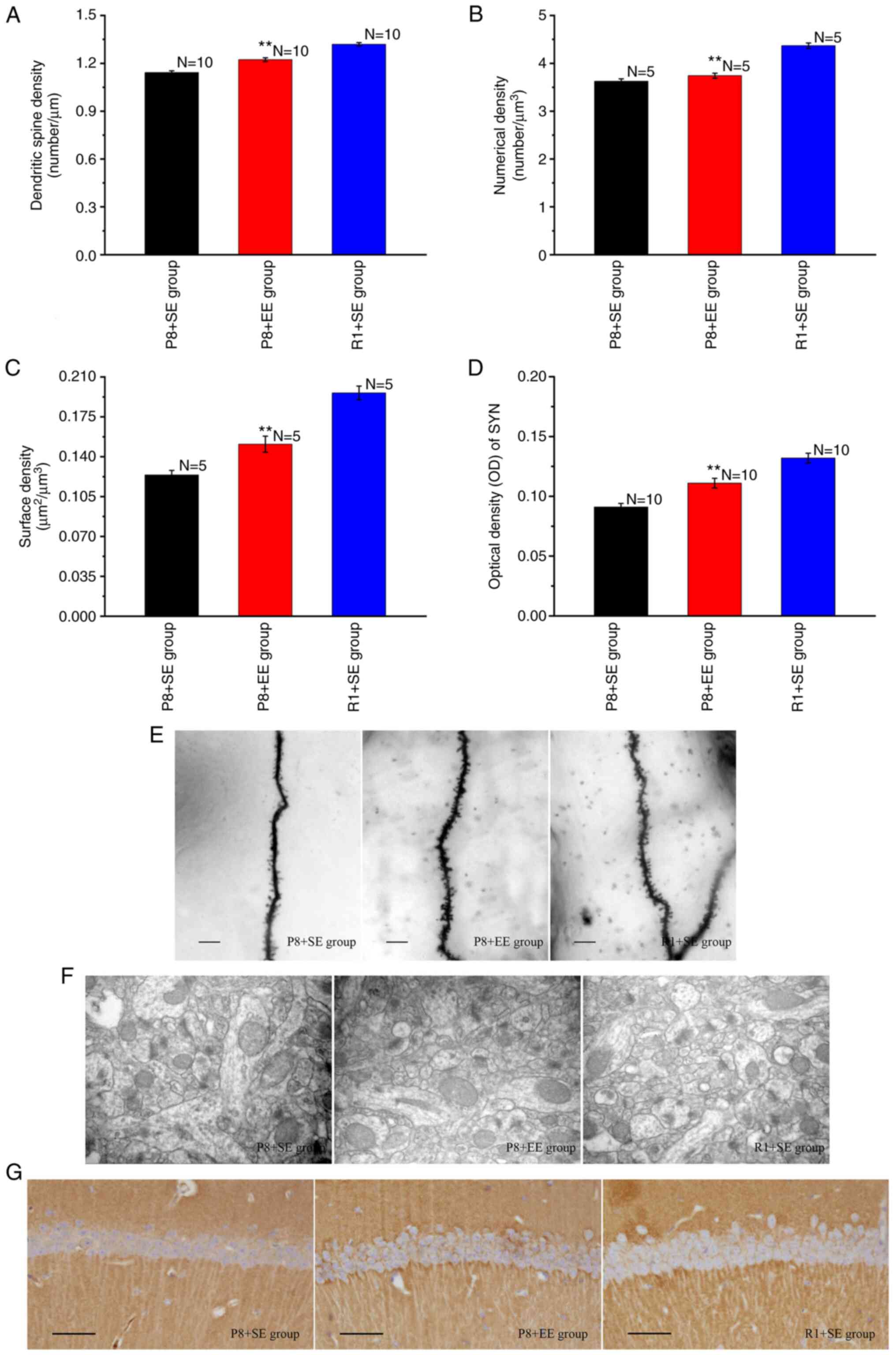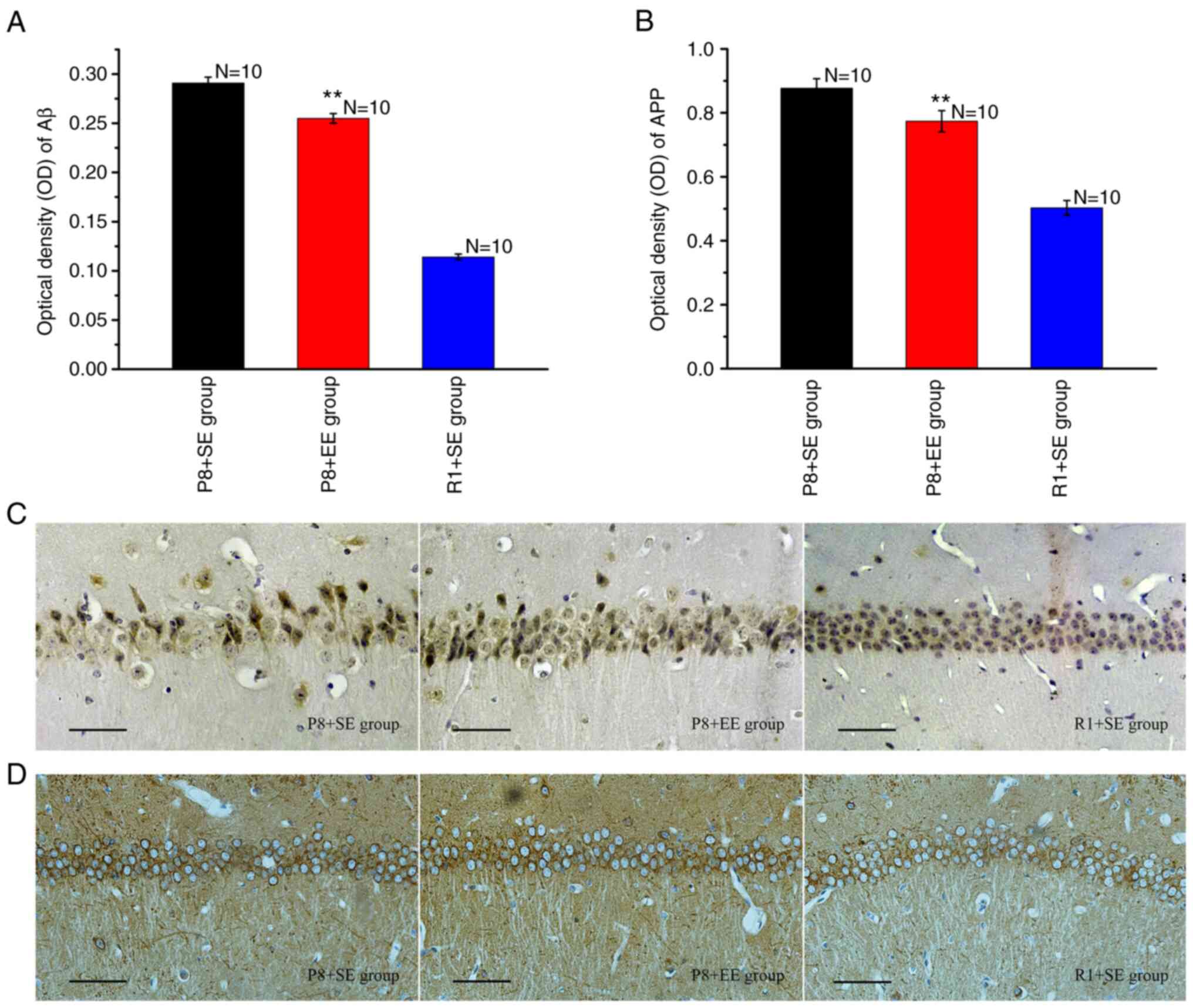|
1
|
Ribarič S: The rationale for insulin
therapy in Alzheimer's disease. Molecules. 21(689)2016.PubMed/NCBI View Article : Google Scholar
|
|
2
|
Petersen RC, Smith GE, Waring SC, Ivnik
RJ, Tangalos EG and Kokmen E: Mildcognitive impairment: Clinical
characterization and outcome. Arch Neurol. 56:303–308.
1999.PubMed/NCBI View Article : Google Scholar
|
|
3
|
Winblad B, Palmer K, Kivipelto M, Jelic V,
Fratiglioni L, Wahlund LO, Nordberg A, Bäckman L, Albert M,
Almkvist O, et al: Mild cognitive impairment-beyond controversies,
towards a consensus: Report ofthe international working group on
mild cognitive impairment. J Intern Med. 256:240–246.
2004.PubMed/NCBI View Article : Google Scholar
|
|
4
|
Albert MS, DeKosky ST, Dickson D, Dubois
B, Feldman HH, Fox NC, Gamst A, Holtzman DM, Jagust WJ, Petersen
RC, et al: The diagnosis of mild cognitive impairment due to
Alzheimer's disease: Recommendations from the national institute on
aging-Alzheimer's association workgroups on diagnostic guidelines
for Alzheimer's disease. Alzheimers Dement. 7:270–279.
2011.PubMed/NCBI View Article : Google Scholar
|
|
5
|
Yi D, Choe YM, Byun MS, Sohn BK, Seo EH,
Han J, Park J, Woo JI and Lee DY: Differences in functional brain
connectivity alterations associated with cerebral amyloid
deposition in amnestic mild cognitive impairment. Front Aging
Neurosci. 7(15)2015.PubMed/NCBI View Article : Google Scholar
|
|
6
|
Min BQ, Zhang LN, Lu Y, Zhou AH, Wei CB
and Jian JP: Degeneration of optic nerve and retina in patients of
mild cognitive impairment and Alzheimer's disease. J Neurosci Ment
Heal. 12:491–494. 2012.
|
|
7
|
Cheng XR, Zhou WX and Zhang YX: The
behavioral, pathological and therapeutic features of the
senescence-accelerated mouse prone 8 strain as an Alzheimer's
disease animal model. Ageing Res Rev. 13:13–37. 2014.PubMed/NCBI View Article : Google Scholar
|
|
8
|
Wang JH, Ye FQ, Cheng XR, Zhang XR, Liu F,
Liu G, Ni M, Qiao SY, Zhou WX and Zhang YX: The effects of LW-AFC
on intestinal microbiome in senescence-accelerated mouse prone 8
strain, a mouse model of Alzheimer's disease. J Alzheimers Dis.
53:907–919. 2016.PubMed/NCBI View Article : Google Scholar
|
|
9
|
Griñán-Ferré C, Corpas R,
Puigoriol-Illamola D, Palomera-Ávalos V, Sanfeliu C and Pallàs M:
Understanding epigenetics in the neurodegeneration of Alzheimer's
disease: SAMP8 mouse model. J Alzheimers Dis. 62:943–963.
2018.PubMed/NCBI View Article : Google Scholar
|
|
10
|
Kang L, Li S, Xing ZG, Li JZ, Su YH, Fan
P, Wang L and Cui HX: Dihydrotestosterone treatment delays the
conversion from mild cognitive impairment to Alzheimer's disease in
SAMP8 mice. Horm Behav. 65:505–515. 2014.PubMed/NCBI View Article : Google Scholar
|
|
11
|
Hebb DO: The effects of early experience
on problem-solving at maturity. Am Psychol. 2:306–307. 1947.
|
|
12
|
Meng FT, Zhao J, Ni RJ, Fang H, Zhang LF,
Zhang Z and Liu YJ: Beneficial effects of enriched environment on
behaviors were correlated with decreased estrogen and increased
BDNF in the hippocampus of male mice. Neuro Endocrinol Lett.
36:490–497. 2015.PubMed/NCBI
|
|
13
|
Sanford AM: Mild cognitive impairment.
Clin Geriatr Med. 33:325–337. 2017.PubMed/NCBI View Article : Google Scholar
|
|
14
|
He YS, Yao ZB, Gu YM, Kuang GB and Chen
YC: Nerve growth factor promotes collateral sprouting of
cholinergic filbers in the septohippocampal cholinergic system of
aged rats with fimbria transaction. Brain Res. 586:27–35.
1992.PubMed/NCBI View Article : Google Scholar
|
|
15
|
Jones DG and Calverley RK: Frequency of
occurrence of perforated synapses in developing rat neocortex.
Neurosci Lett. 129:189–192. 1991.PubMed/NCBI View Article : Google Scholar
|
|
16
|
He JF, Qian G, Ling X, Wu MS, Guo P and
Luo SY: Compound ruikangxin can reverse the structural plasticity
of synapses in hippocampus, amygdala and nucleus accumbens in
morphine withdrawal rats. Acta Anatomica Sin. 42:300–306. 2011.(In
Chinese).
|
|
17
|
Li S, Kang L, Zhang C, Xie GS, Li N, Zhang
Y, Du J and Cui HX: Effects of dihydrotestosterone on synaptic
plasticity of hippocampus in male SAMP8 mice. Exp Gerontol.
48:778–785. 2013.PubMed/NCBI View Article : Google Scholar
|
|
18
|
Guo LZ, Li LM and Zhang C: Effects of
S14G-humanin on Aβ31-35-induced dysfunction of learning and memory
and neuronal apoptosis in rat. Chin J Neuroanatomy. 27:164–168.
2011.(In Chinese).
|
|
19
|
Haesner M, O'Sullivan JL, Gövercin M and
Steinhagen-Thiessen E: Requirements of older adults for a daily use
of an internet-based cognitive training platform. Inform Health Soc
Care. 40:139–153. 2015.PubMed/NCBI View Article : Google Scholar
|
|
20
|
Leon M and Woo C: Environmental enrichment
and successful aging. Front Behav Neurosci. 12(155)2018.PubMed/NCBI View Article : Google Scholar
|
|
21
|
Bruel-Jungerman E, Laroche S and Rampon C:
New neurons in the dentate gyrus are involved in the expression of
enhanced long-term memory following environmental enrichment. Eur J
Neurosci. 21:513–521. 2005.PubMed/NCBI View Article : Google Scholar
|
|
22
|
Leggio MG, Mandolesi L, Federico F,
Spirito F, Ricci B, Gelfo F and Petrosini L: Environmental
enrichment promotes improved spatial abilities and enhanced
dendritic growth in the rat. Behav Brain Res. 163:78–90.
2005.PubMed/NCBI View Article : Google Scholar
|
|
23
|
Rampon C, Tang YP, Goodhouse J, Shimizu E,
Kyin M and Tsien JZ: Enrichment induces structural changes and
recovery from nonspatial memory deficits in CA1 NMDAR1-knockout
mice. Nat Neurosci. 3:238–244. 2000.PubMed/NCBI View
Article : Google Scholar
|
|
24
|
Arranz L, De Castro NM, Baeza I,
Giménez-Llort L and De la Fuente M: Effect of environmental
enrichment on the immunoendocrine aging of male and female
triple-transgenic 3xTg-AD mice for Alzheimer's disease. J
Alzheimers Dis. 25:727–737. 2011.PubMed/NCBI View Article : Google Scholar
|
|
25
|
Polito L, Chierchia A, Tunesi M,
Bouybayoune I, Kehoe PG, Albani D and Forloni G: Environmental
enrichment lessens cognitive decline in APP23 mice without
affecting brain sirtuin expression. J Alzheimers Dis. 42:851–864.
2014.PubMed/NCBI View Article : Google Scholar
|
|
26
|
Stuart KE, King AE, Fernandez-Martos CM,
Dittmann J, Summers MJ and Vickers JC: Mid-life environmental
enrichment increases synaptic density in CA1 in a mouse model of
Aβ-associated pathology and positively influences synaptic and
cognitive health in healthy ageing. J Comp Neurol. 525:1797–1810.
2017.PubMed/NCBI View Article : Google Scholar
|
|
27
|
Griñán-Ferré C, Izquierdo V, Otero E,
Puigoriol-Illamola D, Corpas R, Sanfeliu C, Ortuño-Sahagún D and
Pallàs M: Environmental enrichment improves cognitive deficits, AD
hallmarks and epigenetic alterations presented in 5xFAD mouse
model. Front Cell Neurosci. 12(224)2018.PubMed/NCBI View Article : Google Scholar
|
|
28
|
Stuart KE, King AE, King NE, Collins JM,
Vickers JC and Ziebell JM: Late-life environmental enrichment
preserves short-term memory and may attenuate microglia in male
APP/PS1 mice. Neuroscience. 408:282–292. 2019.PubMed/NCBI View Article : Google Scholar
|
|
29
|
Griñan-Ferré C, Pérez-Cáceres D,
Gutiérrez-Zetina SM, Camins A, Palomera-Avalos V, Ortuño-Sahagún D,
Rodrigo MT and Pallàs M: Environmental enrichment improves
behavior, cognition, and brain functional markers in young
senescence-accelerated prone mice (SAMP8). Mol Neurobiol.
53:2435–2450. 2016.PubMed/NCBI View Article : Google Scholar
|
|
30
|
Griñan-Ferré C, Puigoriol-Illamola D,
Palomera-Ávalos V, Pérez-Cáceres D, Companys-Alemany J, Camins A,
Ortuño-Sahagún D, Rodrigo MT and Pallàs M: Environmental enrichment
modified epigenetic mechanisms in SAMP8 mouse hippocampus by
reducing oxidative stress and inflammaging and achieving
neuroprotection. Front Aging Neurosci. 8(241)2016.PubMed/NCBI View Article : Google Scholar
|
|
31
|
Yuan ZY, Wang MW, Yan BY, Gu P, Jiang XM,
Yang XF and Cui DS: An enriched environment improves cognitive
performance in mice from the senescence-accelerated prone mouse 8
strain: Role of upregulated neurotrophic factor expression in the
hippocampus. Neural Regen Res. 7:1797–1804. 2012.PubMed/NCBI View Article : Google Scholar
|
|
32
|
Khan UA, Liu L, Provenzano FA, Berman DE,
Profaci CP, Sloan R, Mayeux R, Duff KE and Small SA: Molecular
drivers and cortical spread of lateral entorhinal cortex
dysfunction in preclinical Alzheimer's disease. Nat Neurosci.
17:304–311. 2014.PubMed/NCBI View Article : Google Scholar
|
|
33
|
Witter MP: Organization of the
entorhinal-hippocampal system: A review of current anatomical data.
Hippocampus. 3:33–44. 1993.PubMed/NCBI
|
|
34
|
Dharshini SAP, Taguchi YH and Gromiha MM:
Exploring the selective vulnerability in Alzheimer disease using
tissue specific variant analysis. Genomics. 111:936–949.
2019.PubMed/NCBI View Article : Google Scholar
|
|
35
|
Schmidt-Kastner R and Freund TF: Selective
vulnerability of the hippocampus in brain ischemia. Neuroscience.
40:599–636. 1991.PubMed/NCBI View Article : Google Scholar
|
|
36
|
Morrison JH and Hof PR: Selective
vulnerability of corticocortical and hippocampal circuits in aging
and Alzheimer's disease. Prog Brain Res. 136:467–486.
2002.PubMed/NCBI View Article : Google Scholar
|
|
37
|
Zilkova M, Koson P and Zilka N: The hunt
for dying neurons: Insight into the neuronal loss in Alzheimer's
disease. Bratisl Lek Listy. 107:366–373. 2006.PubMed/NCBI
|
|
38
|
Tian XQ, Zhang L, Yang L, Huang P, Qian X,
Huang PL and Zhang LD: A possible anti-apoptosis mechanism of
hyperbaric oxygen in rats with memory impairments induced by
Aβ25-35. Chin J Phys Med Rehabil. 36:7–11. 2014.
|
|
39
|
van Praag H, Kempermann G and Gage FH:
Neural consequences of environmental enrichment. Nat Rev Neurosci.
1:191–198. 2000.PubMed/NCBI View Article : Google Scholar
|
|
40
|
Brown J, Cooper-Kuhn CM, Kempermann G, Van
Praag H, Winkler J, Gage FH and Kuhn HG: Enriched environment and
physical activity stimulate hippocampal but not olfactory bulb
neurogenesis. Eur J Neurosci. 17:2042–2046. 2003.PubMed/NCBI View Article : Google Scholar
|
|
41
|
Kobilo T, Liu QR, Gandhi K, Mughal M,
Shaham Y and van Praag H: Running is the neurogenic and
neurotrophic stimulus in environmental enrichment. Learn Mem.
18:605–609. 2011.PubMed/NCBI View Article : Google Scholar
|
|
42
|
Herring A, Ambree O, Tomm M, Habermann H,
Sachser N, Paulus W and Keyvani K: Environmental enrichment
enhances cellular plasticity in transgenic mice with Alzheimer-like
pathology. Exp Neurol. 216:184–192. 2009.PubMed/NCBI View Article : Google Scholar
|
|
43
|
Ji XY, Zhang LN, Liu R, Liu YZ, Song JF,
Dong H, Jia YF and Zhou ZG: Potential targets for protecting
against hippocampal cell apoptosis after transient cerebral
ischemia-reperfusion injury in aged rats. Neural Regen Res.
9:1122–1128. 2014.PubMed/NCBI View Article : Google Scholar
|
|
44
|
Hitti FL and Siegelbaum SA: The
hippocampal CA2 region is essential for social memory. Nature.
508:88–92. 2014.PubMed/NCBI View Article : Google Scholar
|
|
45
|
Han WN, Yuan L, Liu XJ, Zhou LW, Wu MN and
Qi JS: The correlation study between spatial memory and hippocampal
long term potentiation in rats. Chin J Behav Med Brain Sci.
21:630–633. 2012.
|
|
46
|
Zhao CH, Su P, Lv C, Guo LM, Cao GQ, Qin
CX and Zhang WS: Berberine alleviates amyloid β-induced
mitochondrial dysfunction and synaptic loss. Oxid Med Cell Longev.
2019(7593608)2019.PubMed/NCBI View Article : Google Scholar
|
|
47
|
Serrano-Pozo A, Frosch MP, Masliah E and
Hyman BT: Neuropathological alterations in Alzheimer disease. Cold
Spring Harb Perspect Med. 1(a006189)2011.PubMed/NCBI View Article : Google Scholar
|
|
48
|
Tu S, Okamoto S, Lipton SA and Xu H:
Oligomeric Aβ-induced synaptic dysfunction in Alzheimer's disease.
Mol Neurodegener. 9(48)2014.PubMed/NCBI View Article : Google Scholar
|
|
49
|
Raven F, Van der Zee EA, Meerlo P and
Havekes R: The role of sleep in regulating structural plasticity
and synaptic strength: Implications for memory and cognitive
function. Sleep Med Rev. 39:3–11. 2018.PubMed/NCBI View Article : Google Scholar
|
|
50
|
Holtmaat A and Svoboda K:
Experience-dependent structural synaptic plasticity in the
mammalian brain. Nat Rev Neurosci. 10:647–658. 2009.PubMed/NCBI View Article : Google Scholar
|
|
51
|
Rochefort NL and Konnerth A: Dendritic
spines: From structure to in vivo function. EMBO Rep. 13:699–708.
2012.PubMed/NCBI View Article : Google Scholar
|
|
52
|
Mavroudis IA, Fotiou DF, Manani MG, Njaou
SN, Frangou D, Costa VG and Baloyannis SJ: Dendritic pathology and
spinal loss in the visual cortex in Alzheimer's disease: A Golgi
study in pathology. Int J Neurosci. 121:347–354. 2011.PubMed/NCBI View Article : Google Scholar
|
|
53
|
Song JM, DiBattista AM, Sung YM, Ahn JM,
Turner RS, Yang J, Pak DT, Lee HK and Hoe HS: A tetra(ethylene
glycol) derivative of benzothiazole aniline ameliorates dendritic
spine density and cognitive function in a mouse model of
Alzheimer's disease. Exp Neurol. 252:105–113. 2014.PubMed/NCBI View Article : Google Scholar
|
|
54
|
Bae J, Sung BH, Cho IH, Kim SM and Song
WK: NESH regulates dendritic spine morphology and synapse
formation. PLoS One. 7(e34677)2012.PubMed/NCBI View Article : Google Scholar
|
|
55
|
Petrinovic MM, Hourez R, Aloy EM, Dewarrat
G, Gall D, Weinmann O, Gaudias J, Bachmann LC, Schiffmann SN, Vogt
KE and Schwab ME: Neuronal Nogo-A negatively regulates dendritic
morphology and synaptic transmission in the cerebellum. Proc Natl
Acad Sci USA. 110:1083–1088. 2013.PubMed/NCBI View Article : Google Scholar
|
|
56
|
Hu XL, Bergström SA, Brink M, Rönnbäck A
and Dahlqvist P: Enriched environment increases spinophilin mRNA
expression and spinophilin immunoreactive dendritic spines in
hippocampus and cortex. Neurosci Lett. 476:79–83. 2010.PubMed/NCBI View Article : Google Scholar
|
|
57
|
Liu N, He S and Yu X: Early natural
stimulation throughenvironmental enrichment accelerates neuronal
development inthe mouse dentate gyrus. PLoS One.
7(e30803)2012.PubMed/NCBI View Article : Google Scholar
|
|
58
|
De Bartolo P, Florenzano F, Burello L,
Gelfo F and Petrosini L: Activity-dependent structural plasticity
of purkinje cell spines in cerebellar vermis and hemisphere. Brain
Struct Funct. 220:2895–2904. 2015.PubMed/NCBI View Article : Google Scholar
|
|
59
|
Liu ZT, Yu TH, Qu TB, Li L and Chu LS:
Effect of buyanghuanwu decoction on the expression of
growth-associated protein 43 and synaptophysin after focal cerebral
ischemia in mice. Chin J Behav Med Brain Sci. 21:1070–1072.
2012.
|
|
60
|
Kwon SE and Chapman ER: Synaptophysin
regulates the kinetics of synaptic vesicle endocytosis in central
neurons. Neuron. 70:847–854. 2011.PubMed/NCBI View Article : Google Scholar
|
|
61
|
Huo DS, Sun JF, Zhang BF, Yan XS, Wang H,
Jia JX and Yang ZJ: Protective effects of testosterone on cognitive
dysfunction in Alzheimer's disease model rats induced by oligomeric
beta amyloid peptide 1-42. J Toxicol Environ Health A. 79:856–863.
2016.PubMed/NCBI View Article : Google Scholar
|
|
62
|
Jia JX, Yan XS, Cai ZP, Song W, Huo DS,
Zhang BF, Wang H and Yang ZJ: The effects of phenylethanoid
glycosides, derived from herba cistanche, on cognitive deficits and
antioxidant activities in male SAMP8 mice. J Toxicol Environ Health
A. 80:1180–1186. 2017.PubMed/NCBI View Article : Google Scholar
|
|
63
|
Zhou CL, Zhao L, Shi HY, Liu JW, Shi JW,
Kan BH, Li Z, Yu JC and Han JX: Combined acupuncture and HuangDiSan
treatment affects behavior and synaptophysin levels in the
hippocampus of senescence-accelerated mouse prone 8 after neural
stem cell transplantation. Neural Regen Res. 13:541–548.
2018.PubMed/NCBI View Article : Google Scholar
|
|
64
|
Dong WG, Yang WD, Li FF, Guo WQ, Qian CH,
Wang F, Li CZ, Lin L and Lin RH: Electroacupuncture improves
synaptic function in SAMP8 mice probably via inhibition of the
AMPK/eEF2K/eEF2 signaling pathway. Evid Based Complement Alternat
Med. 2019(8260815)2019.PubMed/NCBI View Article : Google Scholar
|
|
65
|
Hussain M, Berger M, Eckenhoff RG and
Seitz DP: General anesthetic and the risk of dementia in elderly
patients: Current insights. Clin Interv Aging. 9:1619–1628.
2014.PubMed/NCBI View Article : Google Scholar
|
|
66
|
Lazarov O, Robinson J, Tang YP, Hairston
IS, Korade-Mirnics Z, Lee VM, Hersh LB, Sapolsky RM, Mirnics K and
Sisodia SS: Environmental enrichment reduces Aβ levels and amyloid
deposition in transgenic mice. Cell. 120:701–713. 2005.PubMed/NCBI View Article : Google Scholar
|
|
67
|
Ambree O, Leimer U, Herring A, Görtz N,
Sachser N, Heneka MT, Paulus W and Keyvani K: Reduction of amyloid
angiopathy and Aβ plaque burden after enriched housing in TgCRND8
mice. Am J Pathol. 169:544–552. 2006.PubMed/NCBI View Article : Google Scholar
|
|
68
|
Berardi N, Braschi C, Capsoni S, Cattaneo
A and Maffei L: Environmental enrichment delays the onset of memory
deficits and reduces neuropathological hallmarks in a mouse model
of Alzheimer-like neurodegeneration. J Alzheimers Dis. 11:359–70.
2007.PubMed/NCBI View Article : Google Scholar
|
|
69
|
Ziegler-Waldkirch S, Marksteiner K, Stoll
J, d'Errico P, Friesen M, Eiler D, Neudel L, Sturn V, Opper I,
Datta M, et al: Environmental enrichment reverses Aβ pathology
during pregnancy in a mouse model of Alzheimer's disease. Acta
Neuropathol Commun. 6(44)2018.PubMed/NCBI View Article : Google Scholar
|
|
70
|
Phillips C, Baktir MA, Das D, Lin B and
Salehi A: The link between physical activity and cognitive
dysfunction in Alzheimer disease. Phys Ther. 95:1046–1060.
2015.PubMed/NCBI View Article : Google Scholar
|
|
71
|
Dong JD, Zhou M, Wu XQ, Du MY and Wang XS:
Memantine combined with environmental enrichment improves spatial
memory and alleviates Alzheimer's disease-like pathology in
senescence-accelerated prone-8 (SAMP8) mice. J Biomed Res.
26:439–447. 2012.PubMed/NCBI View Article : Google Scholar
|
|
72
|
Tian Q, Jia J, Qu XH, Chen Y, Guo YL and
Zhang MZ: Effect of neuregulin on expressions of apoptosis and
nuclear factor kappa B in hippocampus of Alzheimer's disease model
rats. Chin J Behav Med Brain Sci. 21:26–29. 2012.
|
|
73
|
Izzo NJ, Xu JB, Zeng CB, Kirk MJ, Mozzoni
K, Silky C, Rehak C, Yurko R, Look G, Rishton G, et al: Alzheimer's
therapeutics targeting amyloid beta1-42 oligomers II:
Sigma-2/PGRMC1 receptors mediate Abeta 42 oligomer binding and
synaptotoxicity. PLoS One. 9(e111899)2014.PubMed/NCBI View Article : Google Scholar
|
|
74
|
Squitti R: Copper subtype of Alzheimer's
disease (AD): Meta-analyses, genetic studies and predictive value
of non-ceruloplasmin copper in mild cognitive impairment conversion
to full AD. J Trace Elem Med Biol. 28:482–485. 2014.PubMed/NCBI View Article : Google Scholar
|
|
75
|
Zhang HJ, Zhao CH, Lv C, Liu XL, Du SJ, Li
Z, Wang YY and Zhang WS: Geniposide alleviates amyloid-induced
synaptic injury by protecting axonal mitochondrial trafficking.
Front Cell Neurosci. 10(309)2017.PubMed/NCBI View Article : Google Scholar
|
|
76
|
Asih PR, Tegg ML, Sohrabi H, Carruthers M,
Gandy SE, Saad F, Verdile G, Ittner LM and Martins RN: Martins RN
multiple mechanisms linking type 2 diabetes and Alzheimer's
disease: Testosterone as a modifer. J Alzheimers Dis. 59:445–466.
2017.PubMed/NCBI View Article : Google Scholar
|
|
77
|
Song L, Li XP, Bai XX, Gao J and Wang CY:
Calycosin improves cognitive function in a transgenic mouse model
of Alzheimer's disease by activating the protein kinase C pathway.
Neural Regen Res. 12:1870–1876. 2017.PubMed/NCBI View Article : Google Scholar
|
|
78
|
Wang XN, Hu XJ, Yang Y, Takata T and
Sakurai T: Nicotinamide mononucleotide protects against β-amyloid
oligomer-inducedc ognitive impairment and neuronal death. Brain
Res. 1643:1–9. 2016.PubMed/NCBI View Article : Google Scholar
|
|
79
|
Yan XS, Yang ZJ, Jia JX, Song W, Fang X,
Cai ZP, Huo DS and Wang H: Protective mechanism of testosterone on
cognitive impairment in a rat model of Alzheimer's disease. Neural
Regen Res. 14:649–657. 2019.PubMed/NCBI View Article : Google Scholar
|
|
80
|
Stairs DJ and Bardo MT: Neurobehavioral
effects of environmental enrichment and drug abuse vulnerability.
Pharmacol Biochem Behav. 92:377–382. 2009.PubMed/NCBI View Article : Google Scholar
|


















